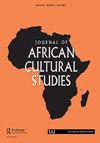刻板印象和肯尼亚幽默的模糊性:丘吉尔秀
IF 0.9
2区 社会学
Q2 CULTURAL STUDIES
引用次数: 0
摘要
摘要丘吉尔秀是一个每周现场录制的喜剧节目,最初在肯尼亚首都内罗毕的食肉动物场上演,后来在全国各地举办。现场录音在肯尼亚NTV电视网上传播,并由Laugh Industry Limited和NTV Kenya在YouTube上发布。《丘吉尔秀》的主题曲提到了将肯尼亚人重新团结在一起,节目中所谓的种族笑话是为了庆祝肯尼亚多元文化,也是为了对抗人们普遍认为的负面种族。我在这篇文章中表明,这些负面的种族叙事存在于殖民地和后殖民地的档案中,如强加给公民的哈兰贝、尼亚约哲学、爱国主义和图詹格肯尼亚意识形态,以此将国家建设的负担转移到普通肯尼亚人身上。我用上传到YouTube上的精选单口相声演员的表演和电视采访来解释该剧在该国的突出地位,该剧中的幽默是如何借鉴该国的历史档案的,以及种族主题的幽默如何无意中重新构建负面刻板印象。本文章由计算机程序翻译,如有差异,请以英文原文为准。
Stereotypes and the Ambiguities of Humour in Kenya: The Churchill Show
ABSTRACT
The Churchill Show is a weekly live and recorded comedy show, originally staged at the Carnivore Grounds in Kenya’s capital, Nairobi, and later hosted in various parts of the country. The live recordings were disseminated on Kenya’s NTV television network and published on YouTube by Laugh Industry Limited and NTV Kenya. The Churchill Show’s theme song includes a reference to bringing Kenyans back together, and the so-called ethnic jokes in the show are presented as a celebration of Kenyan multiculturalism and as a counter to what is popularly known as negative ethnicity. I show in this article that these negative ethnic narratives are situated in colonial and postcolonial archives such as harambee, nyayo philosophy, patriotism and tujenge Kenya ideologies that have been imposed on citizens, as a way of shifting the burden of nation-building onto ordinary Kenyans. I use selected stand-up comedians’ performances that were uploaded on YouTube and TV interviews to explain the prominence of the show in the country, how the humour in the show borrows from historical archives of the country, and how the ethnic-themed humour inadvertently re-constructs negative stereotypes.
求助全文
通过发布文献求助,成功后即可免费获取论文全文。
去求助
来源期刊

Journal of African Cultural Studies
Multiple-
CiteScore
1.70
自引率
10.00%
发文量
13
期刊介绍:
The Journal of African Cultural Studies publishes leading scholarship on African culture from inside and outside Africa, with a special commitment to Africa-based authors and to African languages. Our editorial policy encourages an interdisciplinary approach, involving humanities, including environmental humanities. The journal focuses on dimensions of African culture, performance arts, visual arts, music, cinema, the role of the media, the relationship between culture and power, as well as issues within such fields as popular culture in Africa, sociolinguistic topics of cultural interest, and culture and gender. We welcome in particular articles that show evidence of understanding life on the ground, and that demonstrate local knowledge and linguistic competence. We do not publish articles that offer mostly textual analyses of cultural products like novels and films, nor articles that are mostly historical or those based primarily on secondary (such as digital and library) sources. The journal has evolved from the journal African Languages and Cultures, founded in 1988 in the Department of the Languages and Cultures of Africa at the School of Oriental and African Studies, London. From 2019, it is published in association with the International African Institute, London. Journal of African Cultural Studies publishes original research articles. The journal also publishes an occasional Contemporary Conversations section, in which authors respond to current issues. The section has included reviews, interviews and invited response or position papers. We welcome proposals for future Contemporary Conversations themes.
 求助内容:
求助内容: 应助结果提醒方式:
应助结果提醒方式:


